
British Prime Minister Rishi Sunak's efforts to deport migrants to Rwanda were approved by Parliament after months of legislative delays and opposition from human rights activists. The plan aims to deter migrants crossing the English Channel in small boats, despite concerns about legality and inhumanity. Further court challenges may still impede deportation flights, according to politics professor Tim Bale.

UK Prime Minister Rishi Sunak announced plans for the country's first deportation flights to Rwanda within 10-12 weeks to address the issue of illegal migration, urging the House of Lords to stop blocking the legislation. The bill, which aims to deport asylum-seekers to Rwanda, has faced parliamentary delays for two months as it moves between the House of Commons and the House of Lords. Sunak emphasized readiness and determination to proceed with the flights despite opposition and legal challenges.

The British government is expected to pass a bill aimed at sending asylum-seekers to Rwanda, despite legal challenges. The plan, part of Prime Minister Rishi Sunak's pledge to deter unauthorized migrants, has faced opposition and court rulings due to concerns over Rwanda's safety as a destination. Critics, including human rights groups and legal experts, argue that the plan violates human rights obligations. The Home Office is preparing for deportation flights to Rwanda, with uncertainties about the airline involved. The opposition Labour Party opposes the plan, while the government is considering similar deals with countries like Costa Rica, Armenia, Ivory Coast, and Botswana.

Despite Rishi Sunak's government winning key votes in the Commons on the Safety of Rwanda (Asylum and Immigration) Bill with majorities ranging from 59 to 74, the bill now goes back to the House of Lords for further debates. The government has been facing opposition in the Lords, with uncertainty about the outcome of future votes. The highly controversial law aims to deport asylum seekers to Rwanda, but details like the number of migrants to be sent and the cost remain unclear. Challenges include finding airlines willing to facilitate deportations, with no concrete timeline for the policy's implementation.

A deportation bill passed by MPs aims to forcibly send asylum seekers arriving in the UK via small boats to Rwanda, with plans to hand over £50m to the Rwandan government once the bill becomes law. The bill, facing criticisms and amendments, seeks to limit legal challenges from asylum seekers selected for deportation. Talks with other countries like Costa Rica, Armenia, Ivory Coast, and Botswana were reported for similar schemes. The Home Office claims the bill will deter a third of small boat crossings if approved.

UK Prime Minister Rishi Sunak announced that the first flight carrying asylum seekers to Rwanda will depart in 10-12 weeks as part of a plan to tackle illegal migration. Sunak mentioned preparedness with an airfield on standby, commercial charter planes booked, and 500 trained individuals ready to escort migrants. He emphasized that the flights will proceed despite any obstacles, with the first departure scheduled for July. Sunak assured compliance with Britain's international obligations, prioritizing national security over foreign court memberships like the European Court of Human Rights.

The House of Lords' insistence on changes to the deportation bill has pushed back Rishi Sunak's plan to fly asylum seekers to Rwanda from spring to summer. The bill with two Lords amendments attached is currently stuck in ping pong between the two houses of Parliament. Peers are holding out for changes to ensure safety for Afghans and scrutiny of refugee treatment in east Africa. The delay may lead to flights not taking off before late June or July, with concerns over potential challenges from asylum seekers and the difficulty in securing airlines for mass deportations.

The UK government is advancing its proposal to send asylum seekers to Rwanda, with the Illegal Migration Operations Committee meeting and Rishi Sunak holding a news conference at Downing Street. The House of Lords continues to object to the bill, advocating for a committee to oversee the safety of asylum seekers in Rwanda, leading to potential back-and-forth between the Commons and the Lords.

A total of 534 people crossed the English Channel on Sunday, bringing the provisional total of arrivals in 2024 to 6,265. Rishi Sunak faces parliamentary challenges to revive the stalled Rwanda deportation scheme central to the 'stop the boats' pledge. Peers in the House of Lords propose legal safeguards, but the government aims to push through the bill. The UK government has spent over 240 million on the scheme, with talks of flights to Rwanda or other countries like Costa Rica, Armenia, Ivory Coast, and Botswana. The Home Office cites working with international partners to curb illegal migration.

Border Force vessels arrived in Dover, Kent, carrying a large number of people, including children, who had crossed the English Channel. In 2024, 4,306 individuals have already made the journey compared to 3,770 by the same period in the previous year. Prime Minister Rishi Sunak's efforts to 'stop the boats' are facing scrutiny despite the higher arrival numbers. The government's Rwanda Bill is stalled in parliamentary limbo after defeats in the House of Lords, with no debates scheduled until after Easter break. Home Office remains committed to tougher legislation and international agreements to prevent these crossings.

The UK Parliament will resume voting on the government's controversial Rwanda bill, which aims to declare Rwanda as a safe country for asylum seekers. Reports suggest talks with countries like Armenia have taken place for similar schemes. Costa Rica, Ivory Coast, and Armenia were considered as options, while other African nations like Morocco, Tunisia, Namibia, and Gambia declined discussions. Labour plans to scrap the scheme if it wins the general election, focusing on tackling criminal gangs instead. Charities supporting asylum seekers are preparing legal challenges against deportation to Rwanda if the bill passes.

New defeats for the government's Rwanda bill in the House of Lords have set up a parliamentary showdown on Wednesday - forcing MPs to consider changes to Rishi Sunak's stop the boats plan. Downing Street wants to get the bill - which declares Rwanda a safe country and stops appeals from asylum seekers being sent there on safety grounds - on the statute books this week. On Monday, the House of Commons stripped seven amendments from the bill previously imposed by the Lords. It was then debated again today. Politics latest: No 10 criticises bid to shut down Brussels conference But with new amendments being added once again by peers, the Commons will need to debate these changes and vote on them on Wednesday - with the Lords sitting later in the evening to consider whether to implement further amendments.

The Rwanda asylum plan (officially the UK and Rwanda Migration and Economic Development Partnership, also known as the Rwanda asylum scheme, the Rwanda plan and the Rwanda deal) is an immigration policy first proposed by the British government in April 2022 whereby people whom the United Kingdom identified as illegal immigrants or asylum seekers would have been relocated to Rwanda for processing, asylum and resettlement. Those who were successful in claiming asylum would have remained in Rwanda, and they would not have been permitted to return to the United Kingdom.The first flight for this plan received legal clearance from the High Court of Justice and was scheduled for 14 June 2022. A last-minute interim measure by the European Court of Human Rights led to the plan being halted until the conclusion of the legal action in the UK. At the end of 2022, the High Court further ruled that though the plan was lawful, the individual cases of eight asylum seekers due to be deported that year had to be reconsidered. The Court of Appeal ruled on 29 June 2023 that the plan was unlawful; with an appeal to the Supreme Court of the United Kingdom leading to a concurrence with the lower court on 15 November 2023.

The UK government plans to pay at least 370 million to Rwanda over five years as part of a scheme to relocate asylum seekers, with additional costs for each individual sent to Rwanda and funds allocated for economic development in the country. Critics, including Labour, have called the scheme a national scandal, while the government argues it is necessary to deter illegal migration and human trafficking. Legal challenges have delayed the implementation of the policy, which aims to discourage people from crossing the English Channel in small boats.

On Wednesday, more than 500 migrants crossed the English Channel in small boats, bringing this year's total to 4,043, which is higher than last year. One man arrived with stab wounds after being assaulted near Calais. The House of Lords has opposed the government's Rwanda asylum bill. Home Office is working with French police to prevent illegal crossings, and Prime Minister Rishi Sunak vows to 'stop the boats'.

Provisional Home Office data shows that 4,644 migrants arrived in the UK after crossing the English Channel in small boats in the first three months of 2024, surpassing previous records. Prime Minister Rishi Sunak's plan to stop the boats is facing challenges as crossings in 2024 are higher than in recent years. The Government's Rwanda Bill is experiencing delays in becoming law after defeats in the House of Lords.

British Home Secretary James Cleverly visits Italy to discuss cooperation in stopping migrants traveling from North Africa across the Mediterranean Sea. He meets with Italian Interior Minister Matteo Piantedosi and visits Lampedusa, the main entry point for migrants in Italy. Prime Minister Rishi Sunak pushes for Parliament approval to deport asylum-seekers to Rwanda, facing opposition from courts and rights groups. The UK and Italy are praised for innovative solutions to illegal migration, including a recent deal with Albania.

Ibrahima Bah, a Senegalese asylum-seeker, was found guilty of four counts of manslaughter for piloting an overcrowded inflatable dingy that sank while crossing the English Channel, resulting in the death of four migrants. Bah facilitated illegal entry to the UK and is awaiting sentencing. The incident highlights the dangers of migrant crossings, with the UK government prioritizing measures to deter such journeys, including laws to potentially send migrants to Rwanda for asylum processing, a move criticized by human rights groups.

BRITAIN'S handling of immigration over the past three decades is a "disgrace" and the Tories must share the blame, Robert Jenrick blasted tonight. The former Home Office minister - who quit last December over Rishi Sunak 's refusal to go harder on Rwanda - admitted the government had failed to get a grip for the last 14 years. His plan to tackle the problem would see illegal migrants detained immediately and placed in "rudimentary" disused military bases - instead of hotels - before "thousands" are sent to Rwanda. He said illegal migrants would processed "in hours" - rather than the weeks or months it otherwise could take. And he told The Sun's Never Mind the Ballots that an incoming Labour government would make things far worse.

Four migrants died in French waters as they tried to reach a small boat setting off from the beach in the northern French town of Wimereux. Dozens were rescued in the freezing waters. The deaths come as British MPs are set to debate legislation to deal with asylum seekers arriving in small boats. Last March, French President Emmanuel Macron and U.K. Prime Minister Rishi Sunak agreed on a deal to increase patrols on French shores. UK Foreign Secretary David Cameron described the news as heartbreaking.

The Home Office has launched a social media advert campaign targeting Vietnamese nationals to deter them from illegally migrating to the UK. The campaign features dramatic pictures of overloaded dinghies sinking in the English Channel and testimonies from Border Force officers and migrants who regret risking their lives. The government warns of the risks of being exploited by people-smuggling gangs and highlights the reality of living illegally in the UK with no access to public services. The campaign aims to debunk myths circulated by criminal gangs about the journey and living as an illegal migrant in the UK.

EURO judges risk planting the seeds of their own destruction by meddling in domestic politics, Lord Cameron has warned. Their ruling against Switzerland for not doing enough on climate change was a dangerous overreach, the Foreign Secretary said yesterday. Many Tory MPs want to leave the European Court of Human Rights to stop it thwarting efforts to stop illegal migration. Rishi Sunak has vowed to quit the Strasbourg court if it blocks flights to Rwanda . While Lord Cameron said there were no plans to leave the ECHR, he put its judges on notice that members would not tolerate them blocking elected governments.

Two of Westminster's best-connected journalists, Sky News's Sam Coates and Politico's Jack Blanchard, guide you through their top predictions for the next seven days in British politics. This week, they react to MP Mark Menzies' resignation from the Conservative Party and look at what it might mean for the next election. Also this week, Rishi Sunak is packing his bags for Europe. Jack and Sam discuss what's on the trip's agenda, including highly anticipated announcements on the defence of Ukraine, as well as the UK's wider defence and warfare strategy. Mr Sunak's Rwanda plan could finally pass through parliament too, more than five months after he unveiled the emergency laws.

Rishi Sunak's tenure as Prime Minister of the United Kingdom began on 25 October 2022 when he accepted an invitation from King Charles III to form a government, succeeding Liz Truss. He is the first British Indian to hold the office of prime minister. As prime minister, Sunak is also serving as First Lord of the Treasury, Minister for the Civil Service, and Minister for the Union.Sunak was defeated by Truss in the July–September 2022 Conservative Party leadership election and spent the duration of Truss's premiership as a backbencher. Following Truss's resignation amid a government crisis, Sunak was elected unopposed to succeed her after being the sole nominee in the October 2022 party leadership election. He was elected Leader of the Conservative Party on 24 October and was appointed prime minister the following day.As prime minister, Sunak has authorised foreign aid and weapons shipments to Ukraine in response to the Russian invasion of the country. He and Chancellor of the Exchequer Jeremy Hunt have continued the levelling up policy introduced during the premiership of Boris Johnson. In January 2023, Sunak outlined five key priorities, one of which is the Illegal Migration Bill. In February 2023, Sunak negotiated a proposed agreement with the European Union (EU) on Northern Ireland's trading arrangements which was published as the "Windsor Framework", which is designed to address the issue of the movement of goods between the European single market and the UK in the current Northern Ireland Protocol; the agreement has failed to receive the support of the Democratic Unionist Party (DUP). Sunak attended and spoke at the coronation of King Charles III and Queen Camilla in May 2023. In his speech at the October 2023 Conservative Party Conference, Sunak announced the cancellation of the western branch and the remainder of the eastern branch of the planned High Speed 2 (HS2) railway line. Sunak has reshuffled his Cabinet twice, the latter of which resulted in the return of former prime minister David Cameron to government.A number of scandals involving Conservative MPs have occurred during Sunak's premiership. Gavin Williamson and Dominic Raab resigned from their roles in Cabinet in November 2022 and April 2023 respectively after the former was accused of bullying MPs and the latter was found to have bullied civil servants. Chairman of the Conservative Party Nadhim Zahawi was dismissed by Sunak in January 2023 after he was found to have breached the Ministerial Code by failing to disclose he was being investigated by HM Revenue and Customs while he served as chancellor under Johnson. Home Secretary Suella Braverman was widely panned in November 2023, causing huge controversy for comments made about pro-Palestinian protesters and the homeless, which eventually led to her being dismissed by Sunak. Under Sunak, the Conservative Party lost over 1,000 councillors during the 2023 local elections, while the Labour Party and the Liberal Democrats made significant gains, which were the poorest local election results for the party since the 2019 local elections under Prime Minister Theresa May.

Ibrahima Bah, a migrant found guilty of manslaughter after piloting a dingy where four migrants drowned in the English Channel, was sentenced to nine years and six months in prison. Bah, who was over 18, claimed he was forced by smugglers to steer the boat, but the prosecution argued he owed his fellow passengers a duty of care as he did not pay for his journey. The overcrowded vessel lacked safety equipment and had a capacity for 20 people but attempted to carry 43. Bah was also convicted of facilitating illegal entry to the UK.

An increasing number of refugees and migrants have been entering the United Kingdom illegally by crossing the English Channel in the last decades. The Strait of Dover section between Dover in England and Calais in France represents the shortest sea crossing, and is a long-established shipping route. The shortest distance across the strait, at approximately 20 miles (32 kilometres), is from the South Foreland, northeast of Dover in the English county of Kent, to Cap Gris Nez, a cape near to Calais in the French département of Pas-de-Calais.As of 27 February 2024, the Home Office has detected 116,328 migrants who have crossed the English Channel in small boats since 2018.

The Rwandan Civil War was a large-scale civil war in Rwanda which was fought between the Rwandan Armed Forces, representing the country's government, and the rebel Rwandan Patriotic Front (RPF) from 1 October 1990 to 18 July 1994. The war arose from the long-running dispute between the Hutu and Tutsi groups within the Rwandan population. A 1959–1962 revolution had replaced the Tutsi monarchy with a Hutu-led republic, forcing more than 336,000 Tutsi to seek refuge in neighbouring countries. A group of these refugees in Uganda founded the RPF which, under the leadership of Fred Rwigyema and Paul Kagame, became a battle-ready army by the late 1980s.The war began on 1 October 1990, when the RPF invaded north-eastern Rwanda, advancing 60 km (37 mi) into the country. They suffered a major setback when Rwigyema was killed in action on the second day. The Rwandan Army, assisted by troops from France, gained the upper hand and the RPF were largely defeated by the end of October. Kagame, who had been in the United States during the invasion, returned to take command. He withdrew troops to the Virunga Mountains for several months before attacking again. The RPF began a guerrilla war, which continued until mid-1992 with neither side able to gain the upper hand. A series of protests forced Rwandan President Juvénal Habyarimana to begin peace negotiations with the RPF and domestic opposition parties. Despite disruption and killings by Hutu Power, a group of extremists opposed to any deal, and a fresh RPF offensive in early 1993, the negotiations were successfully concluded with the signing of the Arusha Accords in August 1993.An uneasy peace followed, during which the terms of the accords were gradually implemented. RPF troops were deployed to a compound in Kigali and the peace-keeping United Nations Assistance Mission for Rwanda (UNAMIR) was sent to the country. The Hutu Power movement was steadily gaining influence and planned a "final solution" to exterminate the Tutsi. This plan was put into action following the assassination of President Habyarimana on 6 April 1994. Over the course of about a hundred days, between 500,000 and 1,000,000 Tutsi and moderate Hutu were killed in the Rwandan genocide. The RPF quickly resumed the civil war. They captured territory steadily, encircling cities and cutting off supply routes. By mid-June they had surrounded the capital, Kigali, and on 4 July they seized it. The war ended later that month when the RPF captured the last territory held by the interim government, forcing the government and genocidaires into Zaire.The victorious RPF assumed control of the country, with Paul Kagame as de facto leader. Kagame served as vice president from 1994 and as president from 2000. The RPF began a programme of rebuilding the infrastructure and economy of the country, bringing genocide perpetrators to trial, and promoting reconciliation between Hutu and Tutsi. In 1996 the RPF-led Rwandan Government launched an offensive against refugee camps in Zaire, home to exiled leaders of the former regime and millions of Hutu refugees. This action started the First Congo War, which removed long-time dictator President Mobutu Sese Seko from power. As of 2024, Kagame and the RPF remain the dominant political force in Rwanda.
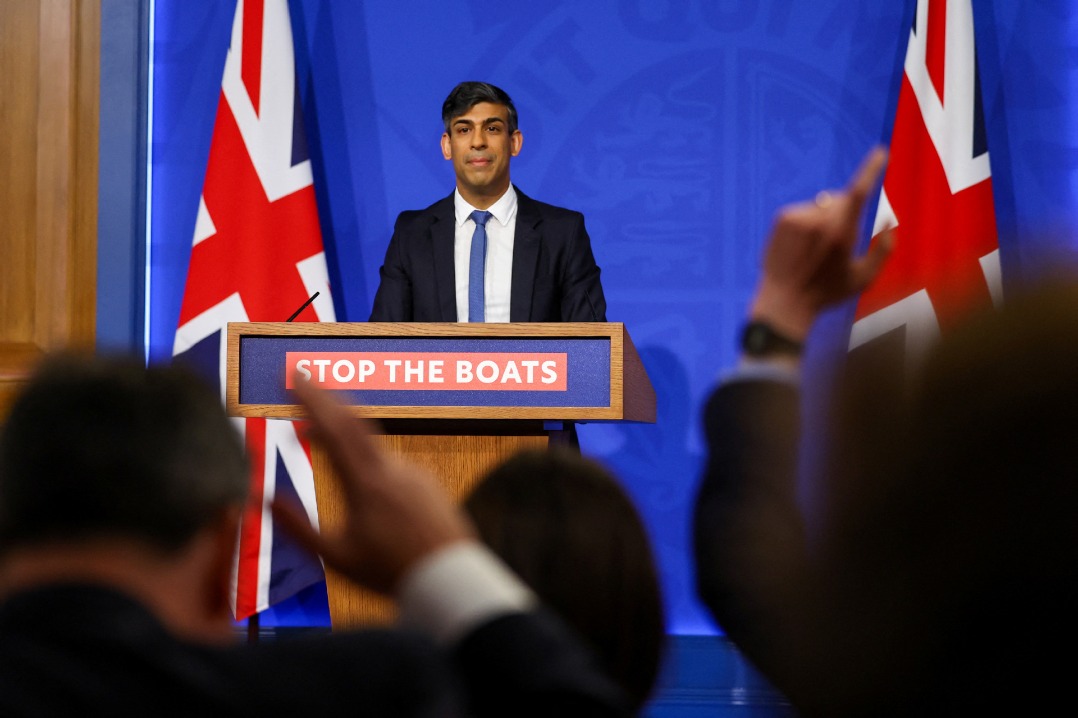
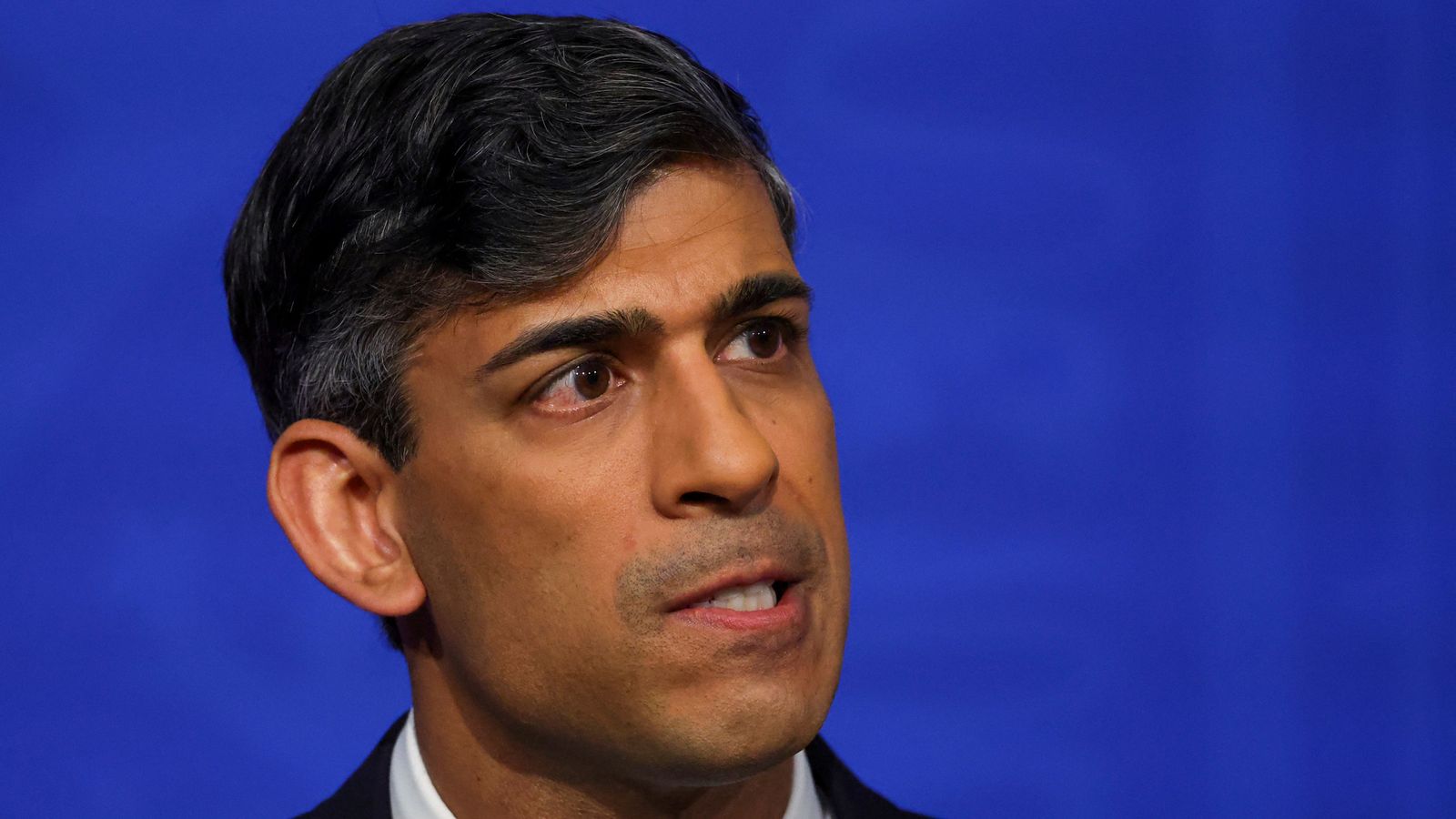
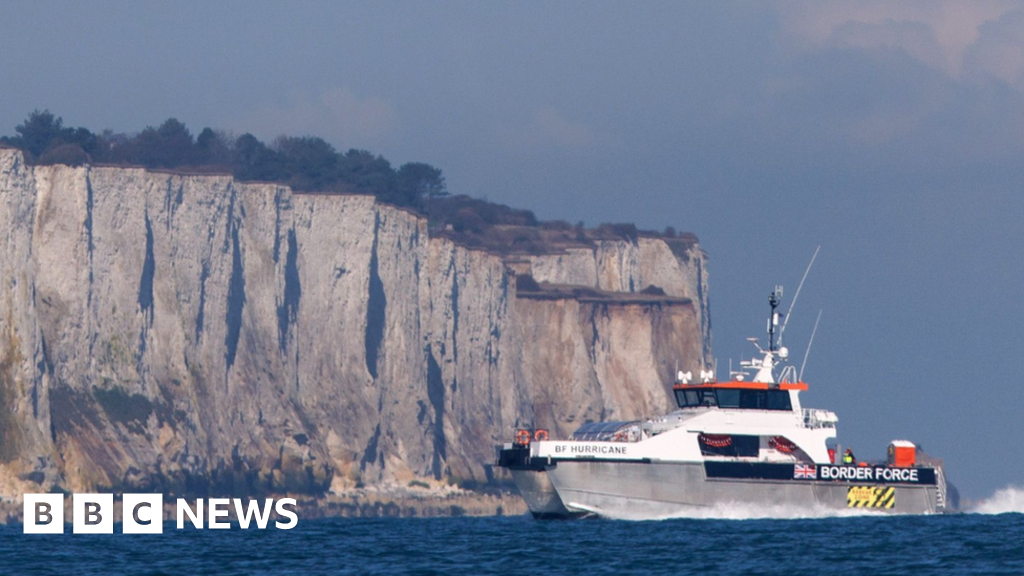
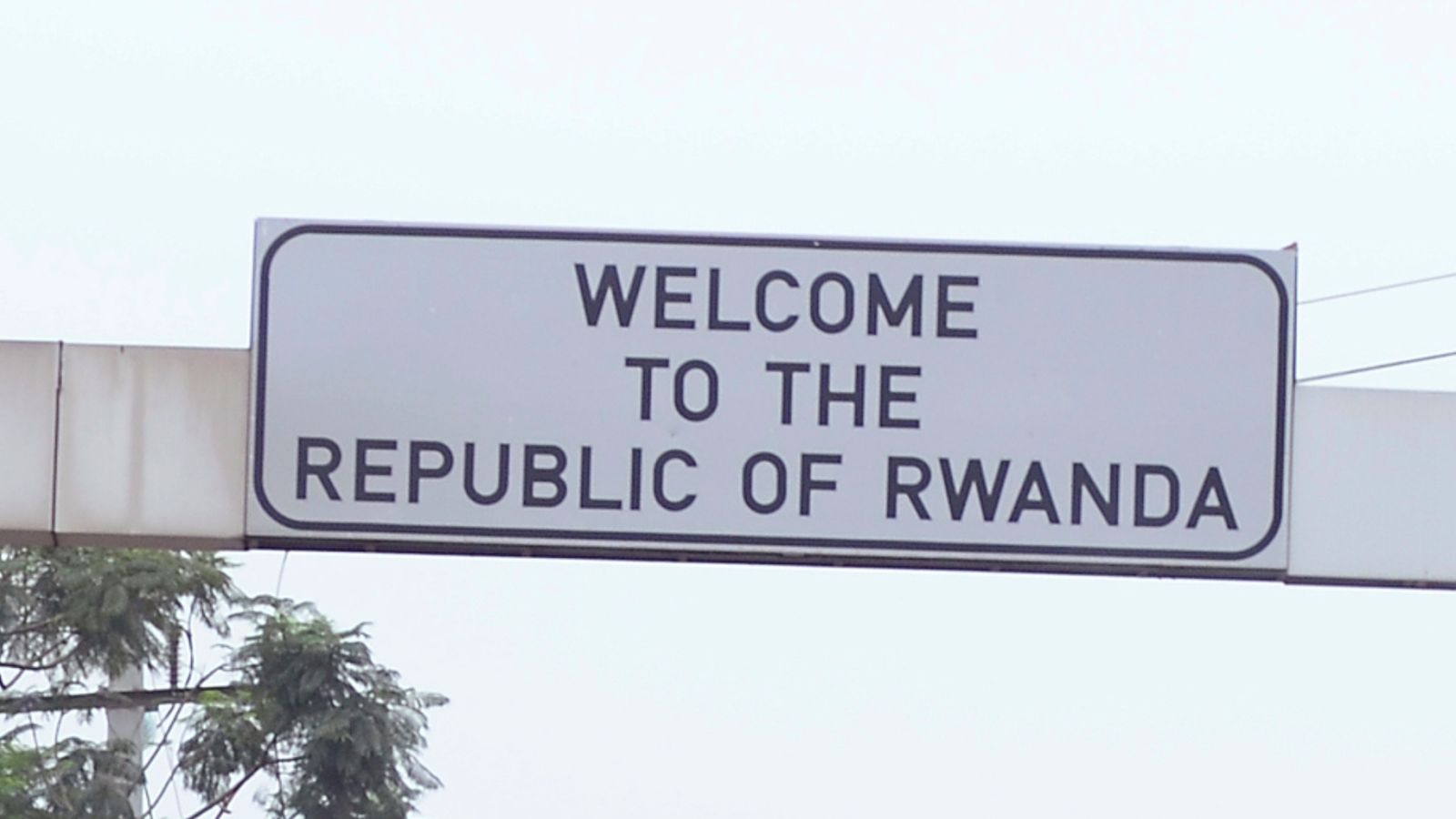

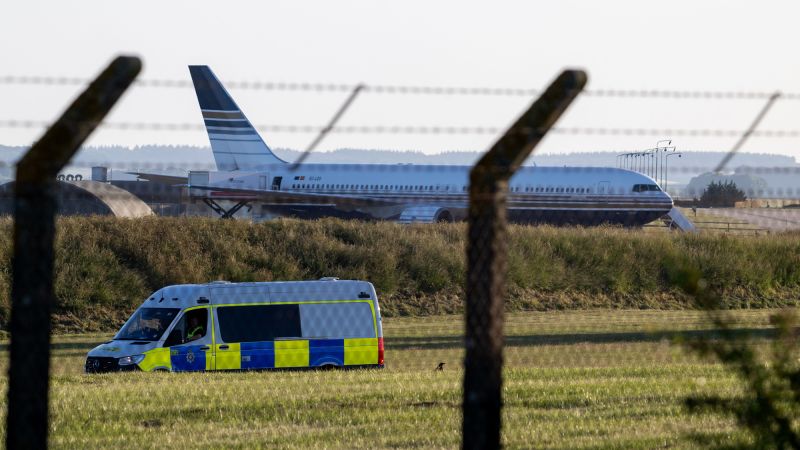

https://www.facebook.com/SunPolitics/

https://www.theguardian.com/profile/rajeev-syal,https://www.theguardian.com/profile/kiran-stacey,https://www.theguardian.com/profile/tom-ambrose

https://www.theguardian.com/profile/carolinedavies

NPR

https://www.facebook.com/bbcnews

Luke McGee

Sky News

Sky News

https://www.facebook.com/bbcnews

Sky News

刘小卓

PANORA

PANORA

PANORA

PANORA

PANORA

PANORA

PANORA

PANORA

PANORA

PANORA

PANORA

Wikipedia

PANORA

PANORA

PANORA

PANORA

PANORA

PANORA

PANORA

PANORA

PANORA

PANORA

Wikipedia

PANORA

Wikipedia

Wikipedia